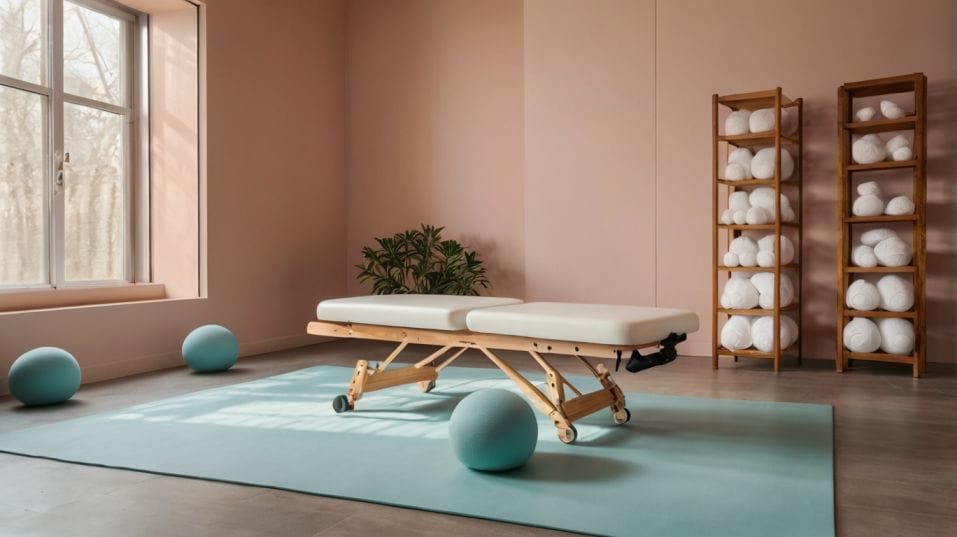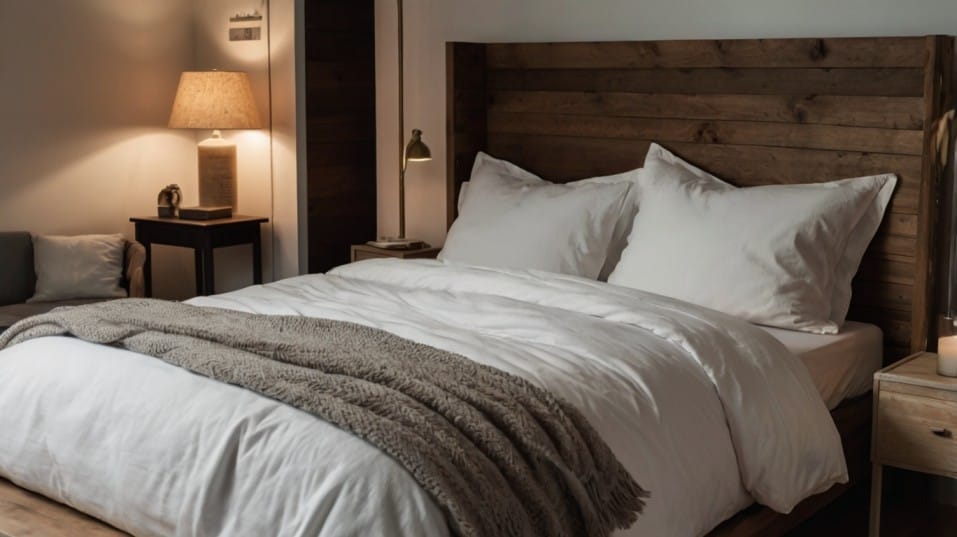Can Better Sleep Reduce Muscle Soreness?
Discover how better sleep reduces muscle soreness, speeds recovery, and helps you train harder—without adding more to your routine.

Ever wonder why you're still sore days after your workout—even with protein shakes and foam rolling? The answer might be simpler than you think. Sleep isn't just downtime; it's the engine room of recovery.
When you don’t sleep well, your body can’t repair what you broke down in training. But when you dial in your sleep, your muscles bounce back faster, soreness fades, and your next session feels like a level-up, not a slog.
Why Sleep Is Ground Zero for Recovery
Let’s strip it down. Training creates micro-tears in your muscles—that’s part of the growth process. But those tears don’t rebuild during your workout or your post-gym smoothie.
They repair when you’re asleep. Specifically, during deep sleep, your body ramps up the release of growth hormone, which triggers tissue repair, protein synthesis, and muscle rebuilding.
This stage of sleep—called slow-wave sleep—is where the heavy lifting of recovery happens. Not enough of it, and your body stays stuck in low gear.
Your muscles ache longer, your energy tanks, and your next workout suffers. No matter how clean you eat or how precise your training is, if your sleep’s garbage, your results will be too.

The Science Behind Sleep and Soreness
There’s a reason elite athletes obsess over sleep. It’s not just about feeling rested—it’s about giving the body the time and conditions it needs to reset. When you sleep well:
- Growth hormone surges. This is the chemical MVP for rebuilding muscle tissue and reducing soreness.
- Cortisol drops. High cortisol (your stress hormone) can delay muscle recovery. Deep, consistent sleep helps regulate it.
- Inflammation is cleared out. Your lymphatic system is more active during sleep, flushing metabolic waste and reducing swelling and stiffness.
- Protein synthesis accelerates. That post-workout protein shake only does its job if your body can put those amino acids to work while you sleep.
On the flip side, poor sleep does the opposite. It increases inflammation, slows tissue repair, and leaves you more sensitive to pain.
Miss a few solid nights in a row, and you’ll start to feel like you’ve aged a decade—soreness lingers, and everything feels harder.
DOMS, Sleep, and Timing
Delayed onset muscle soreness (DOMS) is common after intense training or unfamiliar movement patterns. It usually peaks 24–72 hours after the workout.
This is the critical window where recovery either kicks in or stalls out. If your sleep is inconsistent or fragmented during this time, your body has to work overtime to keep up—and it won’t do it well.
Muscle fibers don’t just need rest. They need uninterrupted, deep rest. One bad night of sleep won’t wreck you, but a pattern of it turns your training into a cycle of constant fatigue.
With proper sleep, though, you shrink that soreness window. You may still feel a little tight, but you’ll notice a faster rebound—and that’s how progress stacks.
How to Make Sleep Work For You
This isn’t about overhauling your life or chasing some mythical "perfect" sleep score.
It’s about creating a setup where your body can actually recover from the work you’re putting in. You already know how to push through workouts—now learn how to recover smarter.
Control your sleep environment
Your bedroom needs to be cool, dark, and quiet. Keep it around 65–68°F. Block out light with blackout curtains or a sleep mask.
Noise machines or earplugs can help if you live in a busy area. Your brain needs these cues to slip into deep sleep faster.
Cut the screens at night
Blue light from your phone or laptop delays melatonin, your sleep hormone. You don’t need to live in darkness, but 30–60 minutes without screen time before bed gives your body a chance to ease into rest mode.
Instead, stretch, journal, or just breathe deeply. Anything that helps you wind down works.
Eat to support overnight recovery
A light, protein-rich snack before bed fuels muscle repair. Try Greek yogurt, casein protein, or cottage cheese. These options are slow-digesting, meaning your muscles have access to amino acids all night long.
Time your workouts strategically
Late-night sessions might feel convenient, but they can mess with your ability to fall asleep.
Adrenaline, cortisol, and elevated heart rate stick around longer than you think. Aim to finish training at least 3 hours before bed, especially if you’ve had trouble falling asleep in the past.
Stick to a rhythm
Your circadian rhythm thrives on consistency.
Going to bed and waking up at the same time every day (yes, even weekends) trains your body to fall asleep faster and get more deep sleep. That’s where the soreness-fighting, strength-building benefits live.
Get outside in the morning
Exposure to natural light early in the day strengthens your sleep-wake cycle. It helps regulate melatonin production and improves your ability to fall asleep at night. Just 10–15 minutes of sunlight in the morning can make a difference.
What You’ll Notice When Sleep Improves
You won’t just feel “less sore.” You’ll feel different. More energized. Less stiff. More motivated to train again. Over time, better sleep will compound your training results: faster strength gains, better endurance, more consistent performance.
Even better? You’ll actually want to work out again the next day—not drag yourself to the gym while pretending to feel recovered. Your body won’t just be surviving. It’ll be adapting and thriving.
Final Thoughts
Soreness isn’t a badge of honor—it’s a sign your body needs recovery. And nothing recovers you faster or more effectively than deep, consistent sleep.
If you’ve been putting in the work but still feel like your progress is stalling, your sleep might be the bottleneck.
Here’s the move: pick one thing to improve tonight. Power down your screen early. Cool your room. Eat a better pre-bed snack.
Don’t wait for soreness to become your default. Better sleep is within reach—and once you feel the difference, you’ll never want to train without it again. Start now. Get serious about sleep. Your muscles are counting on it.




